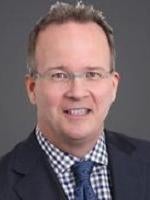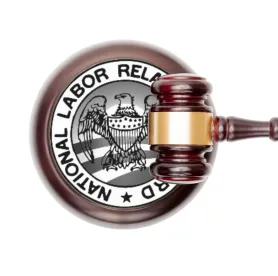Fulfilling a top priority for National Labor Relations Board (NLRB) General Counsel Jennifer A. Abruzzo’s activist agenda, on December 13, 2022, the Board issued a decision that expands, arguably beyond statutory limits, the remedies recoverable by a successful charging party in unfair labor practice cases. The NLRB ruled that its make-whole remedy includes compensating employees “for all direct or foreseeable pecuniary harms suffered” as a consequence of labor violations. Although the 3-2 decision is styled as a clarification of the Board’s existing make-whole remedy that is typically limited to back pay, the ruling significantly expands an employer’s monetary liability particularly in discharge cases. It will clearly make such cases more expensive, more complex, and more difficult to settle.
Direct or Foreseeable Harms
According to the decision, “foreseeable harms” includes those for which an employer or union “knew or should have known would be likely to result from its violation of the” National Labor Relations Act (NLRA). The majority pointed to the example of requiring the reimbursement of out-of-pocket medical expenses incurred by an employee after the employee lost health insurance coverage as the result of an unlawful termination.
The majority further expressly declined to limit its ruling to “extraordinary relief,” and instead said that compensation for foreseeable harms applies “in every case” in which the make-whole remedy applies, “regardless of the egregiousness of the violation or the respondent’s past conduct.”
Under the decision, in order to prove a claimed remedy in a case, the NLRB general counsel will be required to present evidence demonstrating financial harm that is a direct or foreseeable consequence of the charged party’s unfair labor practice. The employer or union facing the charge will then have an opportunity to rebut that evidence.
In a statement issued along with the decision, NLRB Chair Lauren McFerran stated that the NLRB “clearly has the authority to comprehensively address the effects of unfair labor practices” and that by “standardizing the Board’s make-whole relief to fully include the direct or foreseeable financial harms suffered by affected employees” the NLRB “will better serve the important goals of the National Labor Relations Act.”
However, NLRB members John Ring and Marvin Kaplan argued in a dissenting opinion that the majority’s standard “opens the door to awards of speculative damages that go beyond the Board’s remedial authority.” They pointed out that the standard might permit recovery for any losses, “regardless of how long the chain of causation may stretch from unfair labor practice to loss.”
Ring and Kaplan further argued that if the NLRB “strays into areas more akin to tort remedies” it faces potential issues with the Seventh Amendment of the U.S. Constitution. The majority may be concerned with that argument since they took great care to say it did not intend to institute “a policy or practice of awarding consequential damages, a legal term of art more suited for the common law of torts and contracts.” To the contrary, the majority argued that while the make-whole remedy may resemble compensation for a private injury in a tort proceeding, the remedy is grounded in the Board’s statutory authority in Section 10(c) of the NLRA to effectuate the purposes of the Act.
Even if the Board does have the authority to order such remedies it will “invite protracted litigation over causation and compliance,” the dissent argued.
Key Takeaways
In evaluating ULP cases, employers will now need to consider this expanded range of remedies and its resulting potential monetary liability. Requiring an employer to compensate for “direct or foreseeable pecuniary harms” could significantly increase the size of awards in labor cases. The majority’s decision is also likely to add an additional layer of litigation in labor cases in the form of back pay proceedings, which are likely to become far more frequent and the forum for determining such issues as foreseeability and causation of alleged harms for which the general counsel is seeking recovery.
More broadly, this decision is likely to increase the number of unfair labor practice (ULP) charges filed and to make them more difficult to settle than they already are. These new remedies are certain to be part of the general counsel’s settlement demands. Already, General Counsel Abruzzo has ordered prosecutors to seek “full remedies” in negotiated settlement agreements, including reimbursement for credit card late fees and for the loss of a home or car for failure to keep up with loan payments. Other remedies already secured in settlements include repaying the cost of baby formula because of the loss of lactation rooms in the workplace, issuing apology letters to reinstated employees, and mandated trainings for supervisors and managers. This will all unquestionably lead to more frequent and protracted litigation.
The decision comes near the end of Member Ring’s term, which expires on December 16, 2022, and is expected to be the first of a string of cases to be issued before or shortly after his departure.





 />i
/>i
